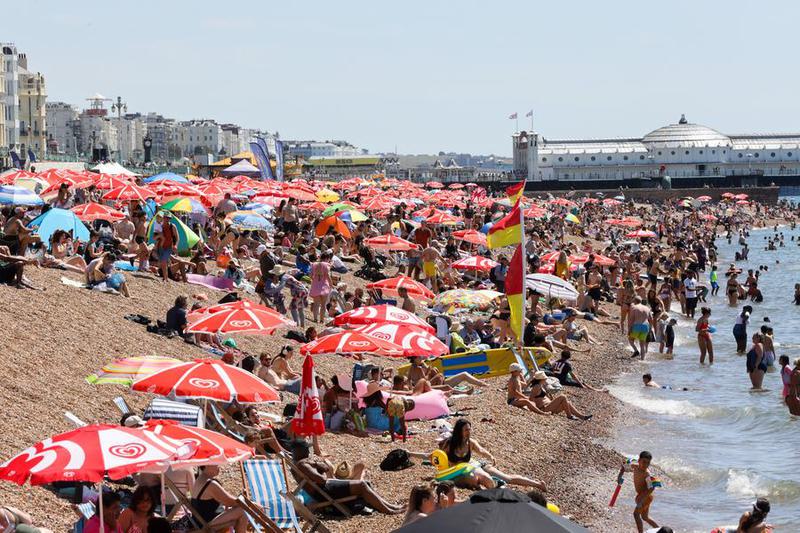Heatwaves fuel unprecedented air conditioner demand in Europe, powering Chinese export


BERLIN -- Europe's recurring summer heatwaves are prompting more households to reconsider their cooling options -- a trend creating fresh opportunities for Chinese appliance manufacturers targeting a market long resistant to air conditioning adoption.
According to a bulletin from the World Meteorological Organization, an early and intense heatwave swept across Europe in late June and early July -- Southern Spain saw temperatures soar to 46 degrees Celsius, while France logged its hottest June day on record. Austria, Slovenia and Bosnia issued red alerts for high temperatures, and countries including Germany, Italy and Portugal are also suffering a scorching summer.
Yet air conditioning remains far from commonplace in Europe. CNN data shows that only about 20 percent of households have cooling systems. In Britain, that figure is just 5 percent; in Germany, it's below 3 percent.
A mix of structural and economic barriers, including a high proportion of rental housing, steep electricity costs and deeply ingrained sustainability values, has long kept air conditioners out of European homes.
A typical 1.5-horsepower unit sells for 600-800 euros ($702-936) in Germany, but installation can cost more than 1,500 euros when labor, permits and building approvals are factored in. Renters also need landlord approval and may have to remove the unit when they move out.
High energy costs are another obstacle. For example, in Berlin, electricity costs about 0.30 to 0.40 euros per kilowatt-hour. Running an air conditioner continuously through July and August could push a household's electricity bill above 200 euros.
Europe's aging housing stock adds another layer of complexity. Many buildings lack pre-installed ducts, and in historic areas, outdoor air conditioning units are often banned to protect the look of the buildings.
However, that history may be starting to change. Persistent high temperatures, combined with increasing concern over health risks, are beginning to erode long-standing environmental and cultural resistance.
Sales of air conditioners are surging. At an electronics store in Stuttgart in early July, air conditioners were sold out. "Europe is starting to genuinely need cooling," said Markus Schmitz, a German AC installer whose schedule is fully booked through late August. "It's no longer a luxury, it's becoming a necessity."
A report by the International Energy Agency forecasts that by 2050, the number of air conditioning units in the EU will reach 275 million, more than doubling the 2019 level.
Chinese manufacturers are already feeling the surge in demand. According to the China Household Electrical Appliances Association, exports of air conditioners to the EU and Britain totaled $1.39 billion in the first five months of 2025, a 20.25 percent year-on-year increase.
Chinese brands have seen growth across several European markets. Hisense said its 2025 first-half sales in Italy rose more than 20 percent and doubled in Hungary. Gree, with a presence in 48 European countries, reported sustained growth in AI-powered, energy-efficient models. Midea's air conditioner sales in Europe jumped 35 percent in the first half of 2025 compared to the same period in 2024, including a 68 percent surge in France.
"Younger families and middle-income households are becoming the main drivers of growth," said Feng Xuezhi, general manager of Hisense Europe's air conditioning division.
At the 2024 IFA in Berlin, Europe's largest consumer electronics exhibition, Hisense unveiled a series of new products featuring high energy efficiency and low climate impact.
Feng said that Europe has strict rules when it comes to energy and environmental compliance, which "helps distinguish our products."
Xu believes Chinese home appliance makers are increasingly shifting from price-based competition to value-driven strategies.
"With climate pressures rising, whoever can offer low-carbon, efficient and intelligent solutions will stand out," he said. "This is where Chinese brands are starting to gain recognition."




































